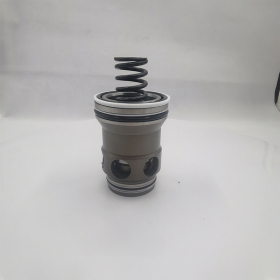When Should You Use Cartridge Valves?
Mar. 26, 2024
Cartridge valves, also known as slip-in valves or insert valves, are compact hydraulic components that offer numerous advantages in various fluid power applications. From their versatility to their ease of maintenance, cartridge valves are a popular choice for engineers and designers across industries. In this guide, we'll explore the key scenarios in which cartridge valves are particularly beneficial and when you should consider using them in your hydraulic systems.
1. Space Constraints
One of the primary advantages of cartridge valves is their compact size. These valves are designed to fit into tight spaces within hydraulic systems, making them ideal for applications where space is limited. Whether you're working with mobile equipment, industrial machinery, or aerospace systems, cartridge valves offer a space-saving solution without compromising performance.
2. Customization and Modularity
Cartridge valves are highly customizable, allowing engineers to tailor their performance to specific application requirements. With a wide range of cartridge valve options available, including pressure relief valves, flow control valves, and directional control valves, designers can mix and match components to create custom hydraulic circuits. This modularity enables greater flexibility in system design and optimization for efficiency and performance.
3. Rapid Installation and Replacement
Another advantage of hydraulic cartridge valves is their ease of installation and replacement. Unlike traditional valves, which require extensive piping and mounting, cartridge valves can be quickly inserted into manifold blocks or valve housings, minimizing assembly time and labor costs. Additionally, in the event of valve failure or maintenance requirements, cartridge valves can be easily removed and replaced without disrupting the entire hydraulic system, reducing downtime and improving productivity.
4. Precise Control and Response
Cartridge valves offer precise control over hydraulic fluid flow, pressure, and direction, allowing for enhanced system performance and responsiveness. Whether it's maintaining precise pressure levels in hydraulic circuits or controlling the speed and direction of actuators, cartridge valves provide accurate and reliable operation. This level of control is particularly beneficial in applications where precise motion control and automation are critical, such as robotics and industrial machinery.

5. Reduced Risk of Contamination
In traditional hydraulic systems, the potential for fluid contamination is a constant concern, leading to decreased performance and reliability. Cartridge valves help mitigate this risk by sealing hydraulic fluid within the valve cartridge, minimizing exposure to external contaminants. Additionally, cartridge valves can be equipped with integrated filtration elements to further protect against contamination, ensuring long-term system reliability and performance.
6. Energy Efficiency
Efficiency is a key consideration in modern hydraulic systems, especially as industries strive to reduce energy consumption and environmental impact. Cartridge valves contribute to energy efficiency by minimizing pressure drops and fluid turbulence within hydraulic circuits, resulting in reduced power consumption and improved overall efficiency. By optimizing flow control and pressure regulation, cartridge valves help maximize the energy output of hydraulic systems while minimizing waste.
7. High Pressure and Flow Capability
Despite their compact size, cartridge valves are capable of handling high pressures and flow rates, making them suitable for demanding applications. Whether it's controlling hydraulic actuators in heavy-duty machinery or managing hydraulic systems in aerospace applications, cartridge valves offer robust performance under challenging conditions. Their ability to withstand high pressures and flow rates makes them a reliable choice for critical hydraulic functions.
In conclusion, cartridge valves offer numerous benefits across a wide range of hydraulic applications, from their compact size and modularity to their precise control and energy efficiency. Whether you're working in a space-constrained environment or aiming to optimize system performance, cartridge valves provide a versatile and reliable solution. By understanding the advantages of cartridge valves and their suitability for specific application scenarios, engineers can make informed decisions when designing hydraulic systems for various industries.Reading more
179
0
0
All Comments (0)
Previous: Ultimate Guide to Butterfly Valve Applications: Everything You Need to Know
Next: Difference Between Pressure Relief Valve and Pressure Safety Valve
If you are interested in sending in a Guest Blogger Submission,welcome to write for us!




Comments